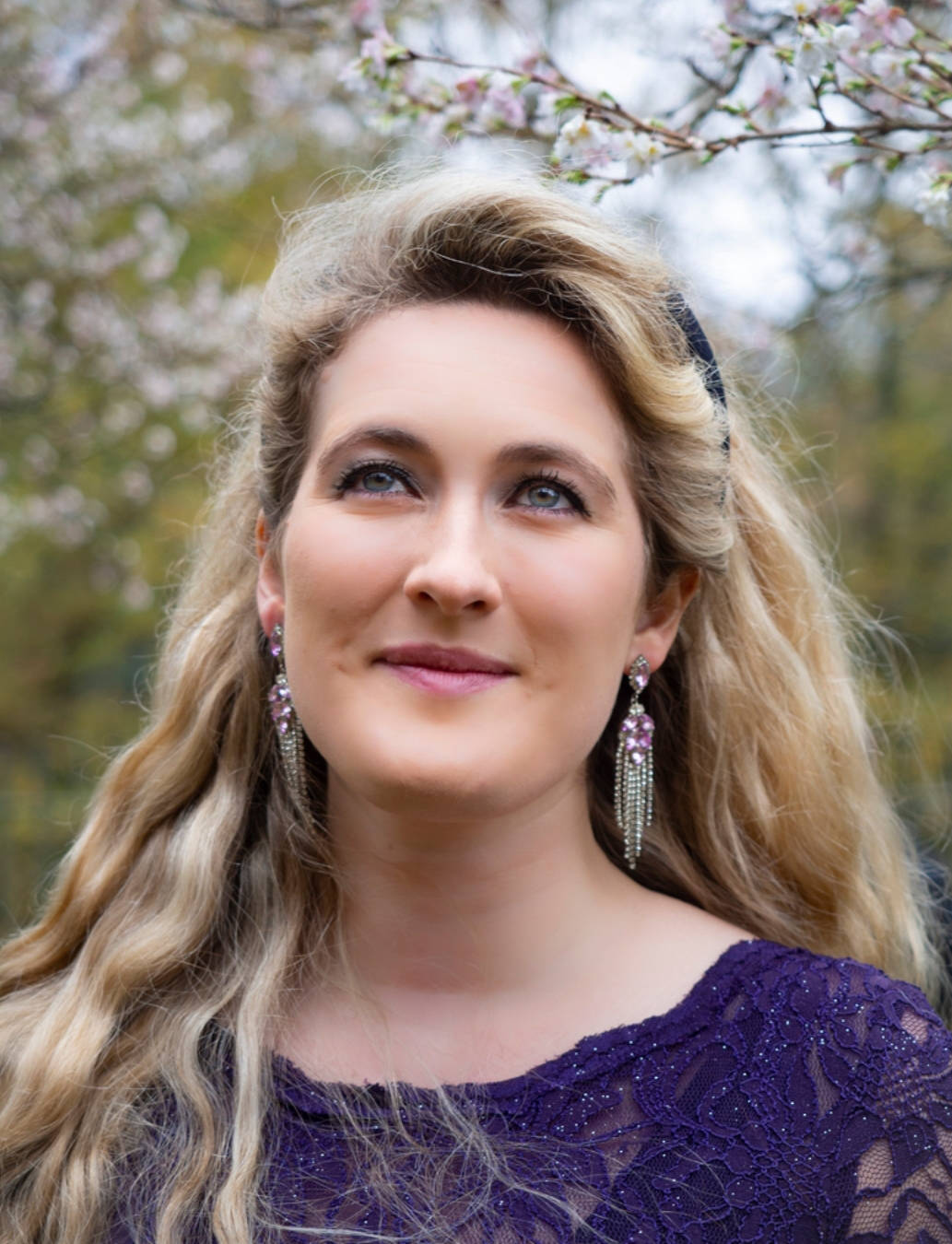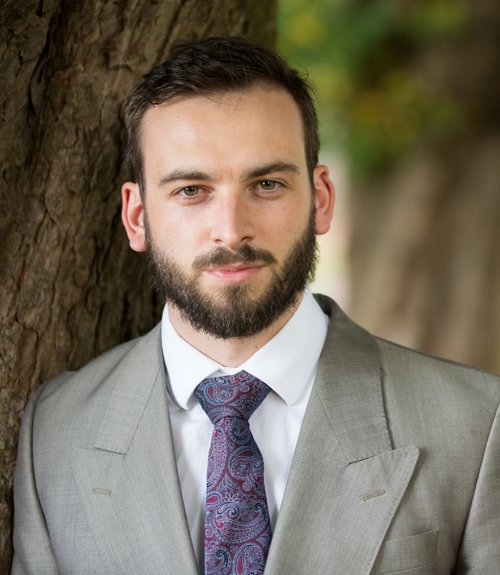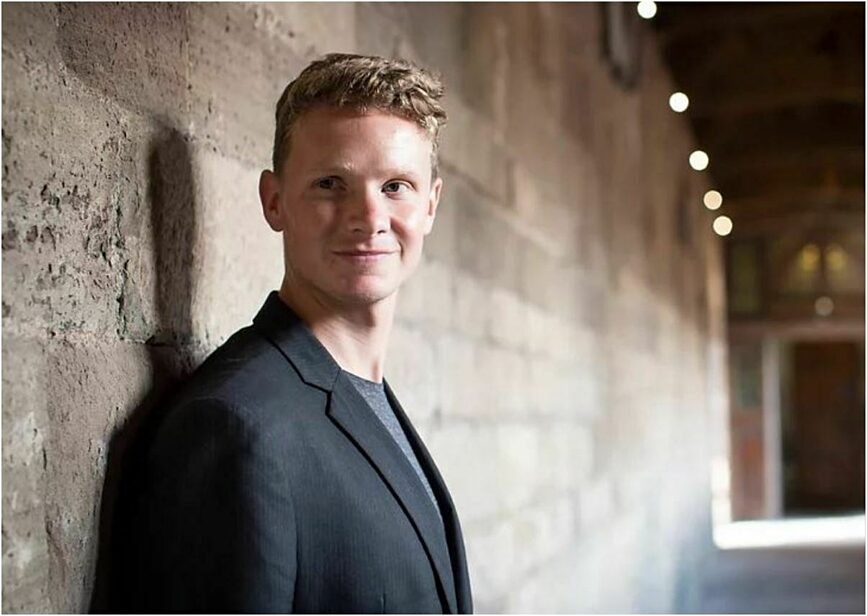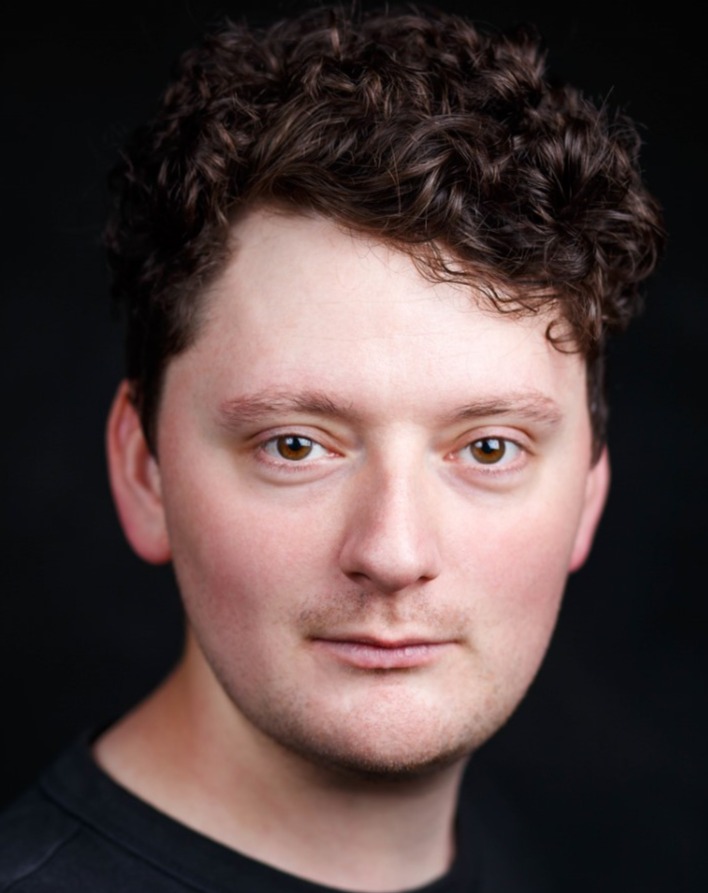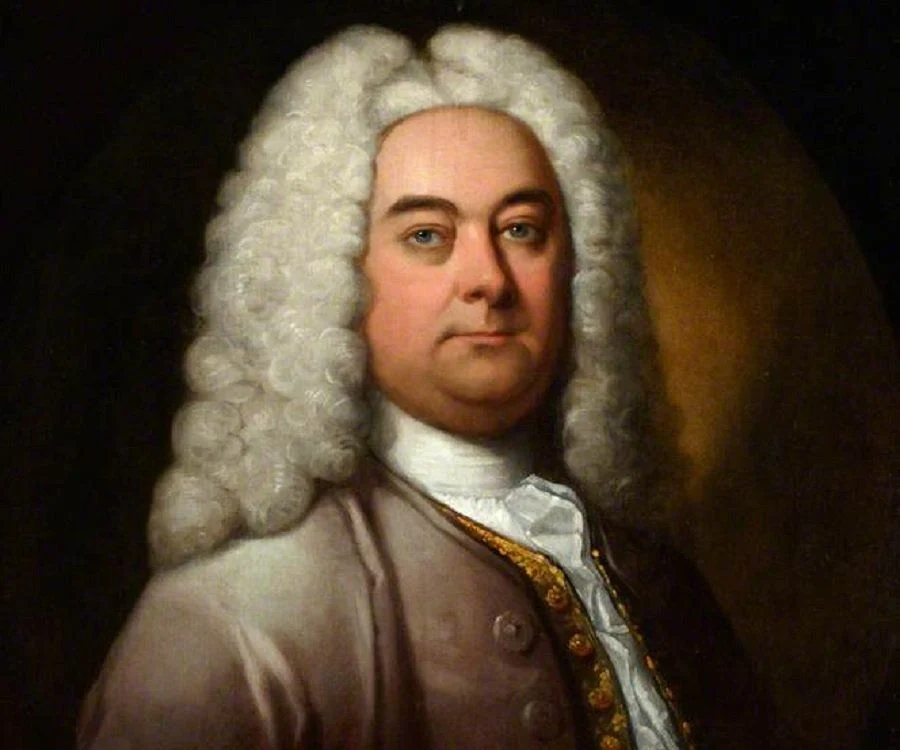Saturday 19th November 2022 7:30pm
The Tung Auditorium
Yoko Ono Lennon Centre
University of Liverpool
60 Oxford Street
Liverpool
L7 3NY
LIVERPOOL WELSH CHORAL wowed the audience with The Messiah by George Frideric Handel.
This iconic choral masterpiece, a favourite of many audiences, was performed with original instruments and highly-rated baroque solo specialists. The work included favourites such as the ‘Hallelujah’ Chorus, ‘The trumpet shall sound’ and ‘I know that my Redeemer liveth’, and recounted the story of Christ, from birth, beyond resurrection to revelation.
With appearances from soloists Hilary Cronin (soprano), Tim Morgan (countertenor), Ruairi Bowen (tenor), James Berry (bass) and the 18th Century Sinfonia.
Conducted by Keith Orrell and accompanied by Stephen Hargreaves.
Hilary Cronin (Soprano) Biography
Winner of both First Prize and the Audience Prize at the 2021 London Handel International Singing Competition, Hilary Cronin studied at Trinity Laban Conservatoire of Music and Dance and was a Robinson Hearn, Trinity College London, and Dame Susan Morden Scholar.
Prior to this, Hilary read Music and was a choral scholar at Royal Holloway University of London, where she was awarded The Driver Prize and the Dame Felicity Lott Bursary.
She also studied on British Youth Opera’s 2020/2021 Serena Fenwick Programme.
Operatic engagements have included Grilletta Lo Speziale for Baroquestock Opera, Mother Hansel and Gretel for Silent Opera and British Youth Opera at Opera Holland Park, Second Woman Dido and Aeneas for the New Generation Festival, Céphise Pygmalion for Dunedin Consort and Mrs Waters The Boatswain’s Mate for Spectra Ensemble at Grimeborn Festival. In 2016, Hilary covered the roles of Minerva Ulysses’ Homecoming and Diana La Calisto for English Touring Opera and in 2019 Hilary covered Despina Così fan tutte for Nevill Holt Opera.
Hilary’s concert repertoire includes the major oratorios of J. S. Bach, Handel, Haydn and Mozart, as well as the Requiems of Brahms, Chilcott, Fauré and Rutter and the Stabat Maters of Pergolesi, Poulenc and Scarlatti.
Hilary has worked with several leading ensembles including Arcangelo, The Monteverdi Choir, Dunedin Consort, London Voices, BBC Singers, English Voices and Sansara.
Hilary Cronin’s upcoming engagements include Bach St Matthew Passion with Gavin Carr and the Bournemouth Symphony Chorus at The Lighthouse – Poole, Bach St John Passion with the English Chamber Orchestra and VOCES8 at Cadogan Hall, Handel motets Saeviat tellus HWV 240 and Silete venti HWV 242 with the London Handel Orchestra at St John’s Smith Square, and Handel Dixit Dominus and Haydn Nelson Mass with Goring Chamber Choir at Douai Abbey.
James Berry (Baritone) Biography
Baritone James Berry began his musical training as a chorister at Lichfield Cathedral, Staffordshire. After studying at Bloxham School and King Edward VI School, Stratford-upon-Avon, he read Religion and Anthropology at the University of Manchester, while learning singing with Andrew Heggie. He then started his formal vocal training at the Royal Northern College of Music (RNCM), studying with Paul Nilon. While there, he was awarded the John Cameron Prize for the Singing of Lieder, and was a finalist in both the Joyce and Michael Kennedy Award for the Singing of Strauss and the Elizabeth Harwood Memorial Award for Singers.
During his time at RNCM, James worked with Sir Thomas Allen, Sir John Tomlinson, Christopher Purves, James Gilchrist, Roger Vignoles, David Owen Norris, Anthony Spiri, Patricia McMahon, Martin Pickard, Richard Stokes, Paul Wynne Griffiths, and Isobel Flinn.
James has worked with a number of opera companies in the UK and abroad; recent solo work has included First Burgess Peter Grimes (Bergen Nasjonale Opera), Leporello Don Giovanni (Opera on Location), Zaretsky Eugene Onegin (OperaUpClose), cover soloist for Bergen Nasjonale Opera’s staged production of Messiah, First Burgess and Fisherman Peter Grimes with Bergen Philharmonic at the Edinburgh International Festival, Ali The Italian Girl in Algiers (Mananan Opera), Valens Theodora (RNCM Opera), Barone Douphol La Traviata (Mananan Opera) and Henri Martel Un Mari à la Porte with Manchester Opera Ensemble.
Recent chorus involvement includes La Clemenza Di Tito, Sweeney Todd, Peter Grimes, Der Fliegender Holländer (Bergen Nasjonale Opera), Aida (Opera North), L’Arlesiana, Iolanta (Opera Holland Park), The Rake’s Progress (Opera Holland Park and Equilibrium Young Artists at the Aldeburgh Festival, Snape Maltings), and La Traviata (Longborough Festival Opera).
Ruari Bowen (Tenor) Biography
A finalist in the International Handel Singing Competition in 2020, Ruairi is much in demand as an interpreter of Baroque repertoire in the UK and abroad, collaborating with some of the leading conductors in the field including Stephen Layton, Emmanuelle Haïm and Sir John Eliot Gardiner. An experienced evangelist of Bach’s Passions, Ruairi made his debuts at Wigmore Hall, Bachfest Leipzig and Snape Maltings with Solomon’s Knot, with whom he will join for Bach’s Weihnachts Oratorium this winter.
Equally at home with larger-scale symphonic works, he sang in the world premiere & recording of Stanford’s Mass Via Victrix with the BBC National Orchestra & Chorus of Wales and Adrian Partington. Other engagements have included Mendelssohn’s Elijah in Worcester Cathedral, Beethoven’s Missa Solemnis with Ben Palmer/Covent Garden Sinfonia and Vaughan Williams’ A Cotswold Romance with the Lebanese Philharmonic Orchestra, and he will sing Verdi’s Messa da Requiem for the first time next year. On the operatic stage, he debuted Prologue/Quint in Britten’s Turn of the Screw at Barnes Music Festival and took on multiple roles in Purcell’s The Indian Queen with Le Concert d’Astrée at l’Opera de Lille in 2019. He returned to Barnes for the role of Satvayān in Holst’s Sāvitri last Spring, and will feature in Sivan Eldar’s Like Flesh at Opéra national de Montpellier in 2022.
A graduate of King’s College, Cambridge, Ruairi was invited to sing on Proud Songsters, an album of English Solo Song recorded with pianist Simon Lepper, featuring distinguished former members of the world-famous chapel choir. Growing up in the Welsh Marches, Ruairi developed a keen interest in exploring the integrated relationship between poetry and nature through pastoral song with recent highlights including a recital on Innocence & Experience with Anna Tilbrook, performing Tippett’s Cantata Boyhood’s End and Finzi’s A Young Man’s Exhortation for Finzi Friends at Ashmansworth. He also performed on themes of The Games & Battles of Love for Recitals at Raynham and The Grange Festival, featuring Monteverdi Songs of Court directed by Michael Chance.
During the live music hiatus in 2020/21, Ruairi was a Support Worker for the Children’s Section of the British Refugee Council, and formed part of The Hampstead Collective, an ensemble dedicated to performing Handel Oratorio and Bach’s sacred works. Where time allows, he returns to Herefordshire to play cricket for Brockhampton CC, and continues his studies with Nicky Spence & Caroline Dowdle.
Timothy Morgan (Countertenor) Biography
A member of the tenth edition of Les Arts Florissants’ Jardin des Voix, Tim is a Samling artist and was a finalist in the 2019 Kathleen Ferrier Awards. His current and future engagements include; Handel’s Partenope (Armindo) with Les Arts Florissants, tours, as a soloist, of motets by Bach and Schütz, and of Carissimi and Scarlatti with Sir John Eliot Gardiner, Handel’s Agrippina (Ottone) with English Touring Opera, and Bach’s Christmas Oratorio with Polyphony and the Britten Sinfonia.
Recent opera and stage highlights include; Handel’s Amadigi di Gaula (Amadigi) with English Touring Opera, Samuel Adams’s play ‘Gabriel’ with Alison Balsom and the English Concert, Britten’s A Midsummer Night’s Dream (Oberon) Nevill Holt Opera, Blow’s Venus and Adonis (Cupid) The Dunedin Consort, Purcell’s Indian Queen with Emanuelle Haim and Le Concert D’Astrée, Faramondo (Gernando) RCMIOS/London Handel Festival.
On the concert stage; Pergolesi’s Stabat Mater with the Orchestra of the age of Enlightenment, duet recitals with Michael Chance MBE, Bach’s St John Passion with the OAE, Sir Simon Rattle and directed by Peter Sellars, Handel’s Berenice (Arsace) with La Nuova Musica, Esther (High Priest) both at the London Handel Festival and Purcell’s King Arthur with Vox Luminis.
Messiah (1741)
George Frideric Handel (1685 – 1759)
By 1741 Handel’s operatic star was beginning to wane. Public tastes were changing. When Charles Jenner handed Handel his latest libretto in July of 1741 it was to encourage him to continue with his more popular English oratorio style. Although mostly religious in theme, they were presented in theatres, in English and far less costly than opera. By September 14, Handel had quickly composed his sixth oratorio and most enduring masterpiece: Messiah.
It is amazing to us that Handel’s composition of Messiah took only twenty-four days. Perhaps profound inspiration on Handel’s part, but it is worth noting that this timeframe was fairly typical for the composer. Most of his operas and oratorios were written in similarly short, intense bursts, often during his limited “down time” between theatrical seasons. In the six weeks immediately after he composed Messiah, for example, he wrote Samson, another large-scale oratorio.
Messiah was first performed in the Great Music Hall, Dublin to great acclaim in Holy Week in 1742. Holy week became the traditional time for performances of Messiah, although in recent decades it has become more associated with Christmas.
London audiences were slower to appreciate Messiah. Many objected to the notion that a biblical text was being sullied by being performed in the theatre: that hotbed of sinful and overwrought drama. For others, the piece was not dramatic enough, since it had so many choruses and practically none of the characters and dialogue more common to opera. But repeated charitable performances for the Foundling Hospital during the 1750s seemed to consolidate Messiah’s place in the musical canon.
For many amateur choirs, and Liverpool Welsh Choral is no exception, the work is at the heart of their repertoire. In most of Handel’s oratorios the soloists dominate, and the choir sings only brief choruses. But in Messiah the chorus is a more equal partner which propels the work forward with great emotional impact and uplifting messages.
This in part must be due to Jennens’ unique libretto. Like most oratorios, the libretto utilizes sacred texts, in this case from both the Old and New Testament. Unlike most oratorios, there are hardly any instances of narrative and no defined speaking characters. Instead of plot-driven action, Jennens presents a succession of dramatic scenes, scriptural passages and metaphorical references that help us to reflect upon the story rather than merely react to it.
Like an opera, the work is divided into three parts, or acts, each comprised of several scenes. Part I offers comforting prophecies of salvation, fiery proclamations of approaching judgment, and a jubilant account of Christ’s birth. Part II is the emotional core of the work, the longest in duration and scope, and certainly the most dramatic. A depiction of Christ’s passion, death, resurrection, and ascension into heaven. The act goes even further, exploring the spread of the gospel and God’s ultimate victory through the triumph of Christ’s reign – ‘Hallelujah’. Part III is one of affirmation and thanksgiving, and invites the listener to contemplate eternal life, the conquest of sin, and the final, joyous acclamation of the Messiah – ‘Worthy is the lamb’ and ‘Amen.’
Performing baroque music in a way which gives an indication of how it would have been heard in 1742 is as much about differing tempi, phrasing and dynamics as substituting period instruments.
The pitch of Baroque music is the element which is probably most noticeable. Prior to the late 19th century there were no universally recognized pitch standards. For a string player, this was no
problem – the string can be tuned to any pitch (within reason) – but for a fixed-pitch instrument, like a flute or an oboe, this was a huge problem. It might mean that if you were an oboist, you could play in tune with a violin band but not with the church organ, or you could form your own band with your friend with a recorder made in your village but not with your friend with a recorder from the next town. By the Classical period standardizing pitch levels became a matter of convenience for traveling musicians. For modern singers, particularly sopranos and tenors, that Baroque pitch – a semitone lower than modern concert pitch – can be a welcome relief!
Baroque stringed instruments have a straighter neck, a lower bridge, and a shorter fingerboard than their modern equivalents, and use gut strings. They also have a lighter bass bar and sound post. Players of violins and violas tend not to use a chin rest or shoulder rest, and cellists play without a spike. The differences give the instruments a characteristic sound and require a slightly different technique. For example, players hold the instruments differently and rely more on the natural resonance of the instrument, using open strings and first position more often than players of modern instruments.
Baroque bows are convex in shape (unlike modern bows, which are concave), are generally lighter and slimmer than modern bows. That creates a variation in tension over the length of the bow and gives a natural diminuendo to a downward sweep of the bow which players use to better articulate the baroque sound.
Handel’s Italian singers would know what was expected by way of vocal ornamentation and so Handel did not notate them. But what of his singers in London? Or Dublin? What would those audiences, at that time, have preferred?
All these elements affect a historically informed performance of Baroque music, as you will hear at this concert.
